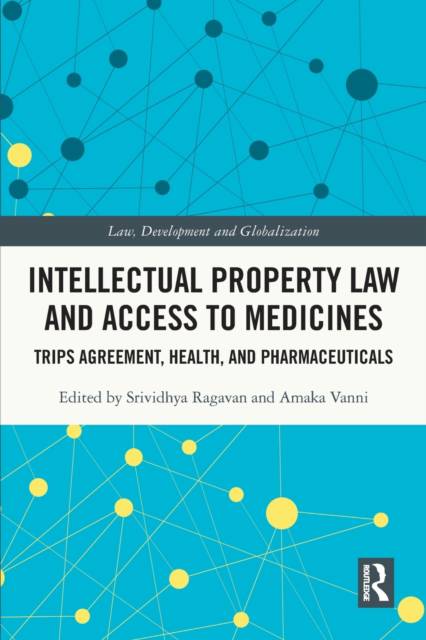
- Afhalen na 1 uur in een winkel met voorraad
- Gratis thuislevering in België vanaf € 30
- Ruim aanbod met 7 miljoen producten
- Afhalen na 1 uur in een winkel met voorraad
- Gratis thuislevering in België vanaf € 30
- Ruim aanbod met 7 miljoen producten
Intellectual Property Law and Access to Medicines
Trips Agreement, Health, and Pharmaceuticals
Omschrijving
The history of patent harmonization is a story of dynamic actors, whose interactions with established structures shaped the patent regime. From the inception of the trade regime to include intellectual property (IP) rights to the present, this book documents the role of different sets of actors - states, transnational business corporations, or civil society groups - and their influence on the structures - such as national and international agreements, organizations, and private entities - that have caused changes to healthcare and access to medication. Presenting the debates over patents, trade, and the Agreement on Trade-Related Aspects of Intellectual Property Rights (TRIPS Agreement), as it galvanized non-state and nonbusiness actors, the book highlights how an alternative framing and understanding of pharmaceutical patent rights emerged: as a public issue, instead of a trade or IP issue. The book thus offers an important analysis of the legal and political dynamics through which the contest for access to lifesaving medication has been, and will continue to be, fought.
In addition to academics working in the areas of international law, development, and public health, this book will also be of interest to policy makers, state actors, and others with relevant concerns working in nongovernmental and international organizations.
Specificaties
Betrokkenen
- Uitgeverij:
Inhoud
- Aantal bladzijden:
- 504
- Taal:
- Engels
- Reeks:
Eigenschappen
- Productcode (EAN):
- 9781032009704
- Verschijningsdatum:
- 9/01/2023
- Uitvoering:
- Paperback
- Formaat:
- Trade paperback (VS)
- Afmetingen:
- 156 mm x 234 mm
- Gewicht:
- 721 g

Alleen bij Standaard Boekhandel
Beoordelingen
We publiceren alleen reviews die voldoen aan de voorwaarden voor reviews. Bekijk onze voorwaarden voor reviews.










